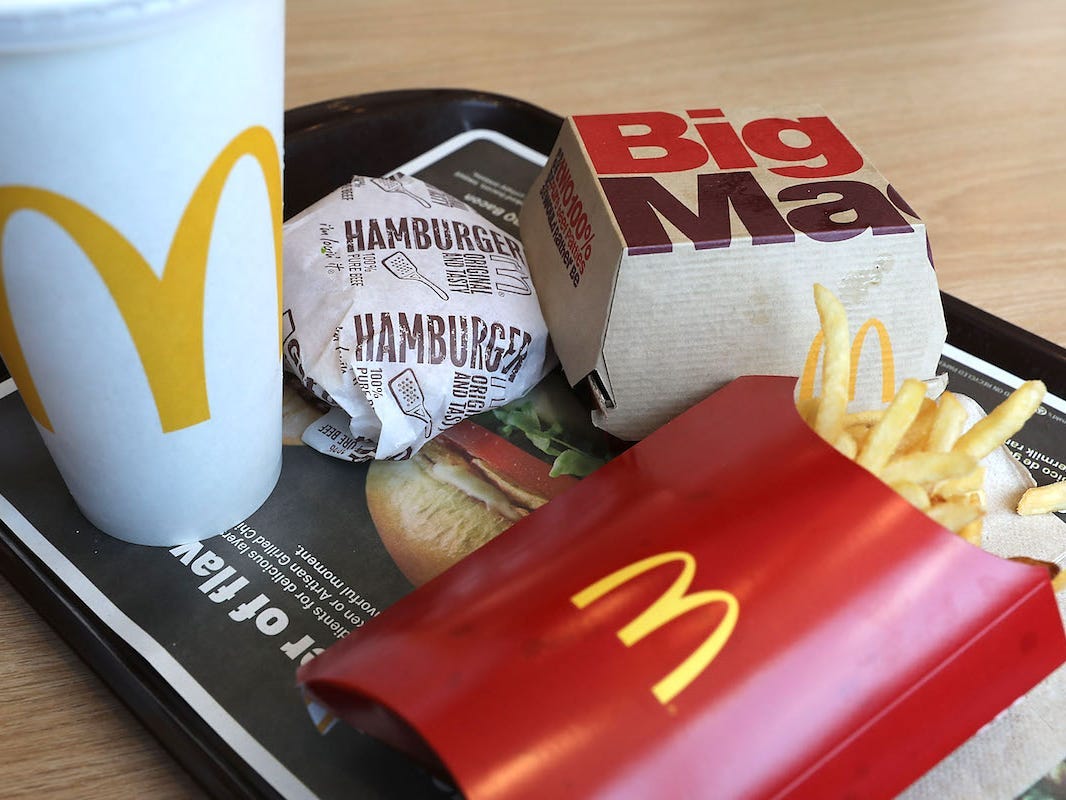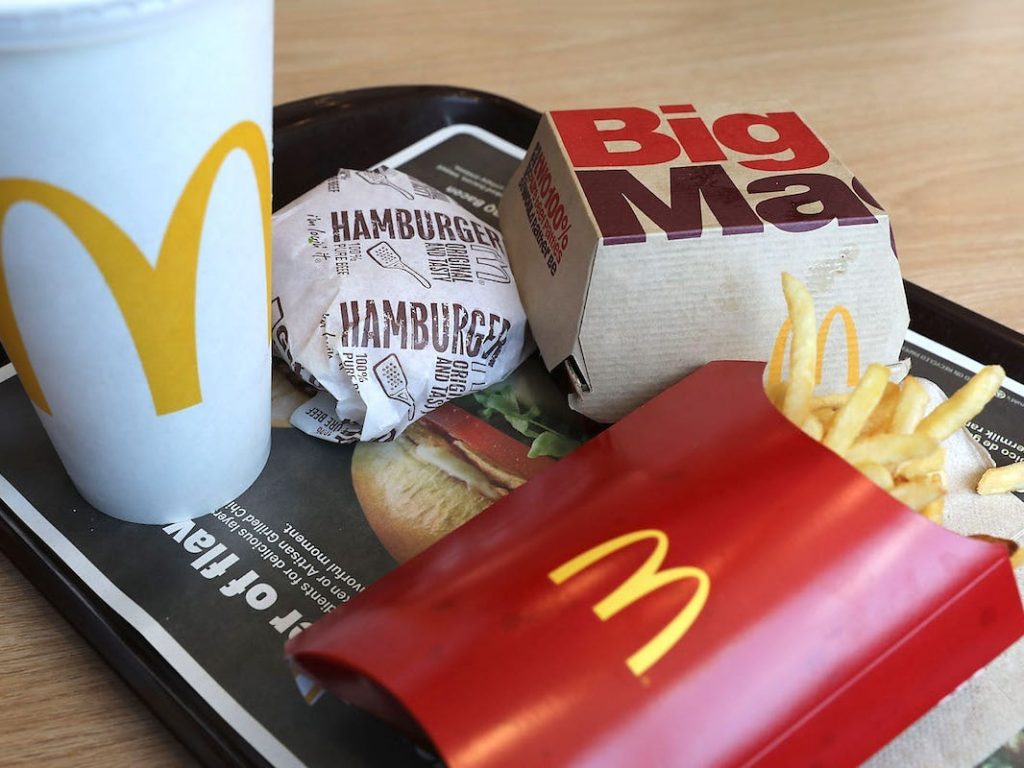
Joe Raedle/Getty Images
- McDonald's says staff shortages are making service slower at its restaurants.
- Some McDonald's have also cut their late-night hours during the labor shortage, its CEO said.
- McDonald's has raised its prices to fund higher wages, but says this hasn't put customers off.
Service at McDonald's is getting slower because it can't find enough staff.
Some of its restaurants have been cutting their hours during the US labor shortage, too, its CEO Chris Kempczinski said Wednesday, adding that he expected to remain short-staffed well into 2022.
But despite this, McDonald's sales were soaring, according to its third-quarter earnings report released on Wednesday, which it credited to higher US menu prices and larger order sizes.
Record numbers of Americans have quit their jobs in search of better wages, benefits, and working conditions. This has caused a huge labor shortage across industries ranging from from education and healthcare to trucking, but restaurants have been especially hard hit.
McDonald's CEO Chris Kempczinski said at its earnings call Wednesday that the labor shortage "is putting some pressure on things like operating hours, where we might be dialing back late night for example from what we would ordinarily be doing."
Some McDonald's restaurants have been shutting their dining rooms, too, like one in North Carolina that said it couldn't find enough staff to operate as usual.
The labor shortage is "also putting some pressure around speed of service," Kempczinski said, noting that restaurants were "down a little bit on speed of service over the last year-to-date."
"That's also a function of not being able to have the restaurants fully staffed," he said.
Kempczinski said that corporate-owned restaurants had raised their wages by an average of 15% in the year to date.
Insider previously reported that a McDonald's in Illinois was offering iPhones to some new hires, while another in Florida gave $50 to anyone who came for an interview.
Kempczinsk said that McDonald's was also providing training to shift managers on how to engage and motivate their staff.
But he said that McDonald's staffing hadn't recovered as quickly as he'd expected, and predicted the problems would persist into 2022.
"Certainly I was hoping and expecting that we're going to see the situation improve maybe a little bit more quickly than what's materialized," he told investors. "And I think it is going to continue to be a difficult environment for the next several quarters."
McDonald's has raised prices but says customers aren't deterred
As well as a tight labor market, the supply chain has been rocked by port congestion, a lack of truck drivers, and soaring demand, causing shortages and price hikes affecting products from meat and fryer oil to paper.
Kempczinsk said commodity costs for McDonald's were up 2% for the first nine months of 2021, but that he expected this to grow to between 3.5% and 4% for the full-year, with food and paper cost increases in the mid-single digits going into 2022.
To offset the higher wages and offset soaring supply prices, McDonald's has raised its prices. The increases are set to reach around 6% year-over-year by the end of 2021, Kempczinsk said.
"We haven't seen any more resistance to our price increases than we've seen historically," he said. Surveys showed that the new prices had been "pretty well received by customers," he added.
In the three months to September 30, McDonald's comparable sales were up 10.2% globally over the same time period in 2019, and 14.6% in the US. The company posted total revenues of $6.2 billion.
Got a story about the restaurant industry? Email this reporter at [email protected].
